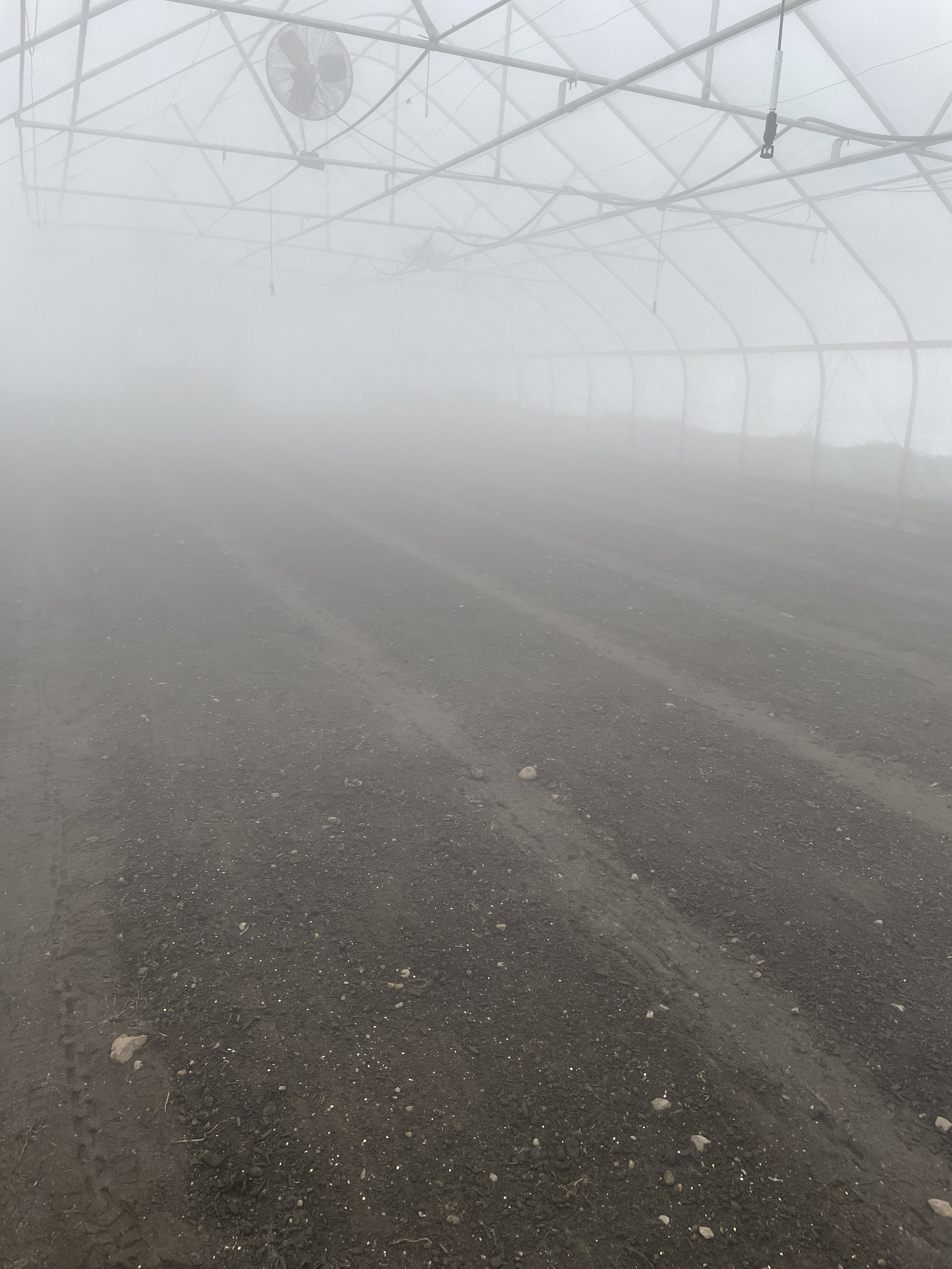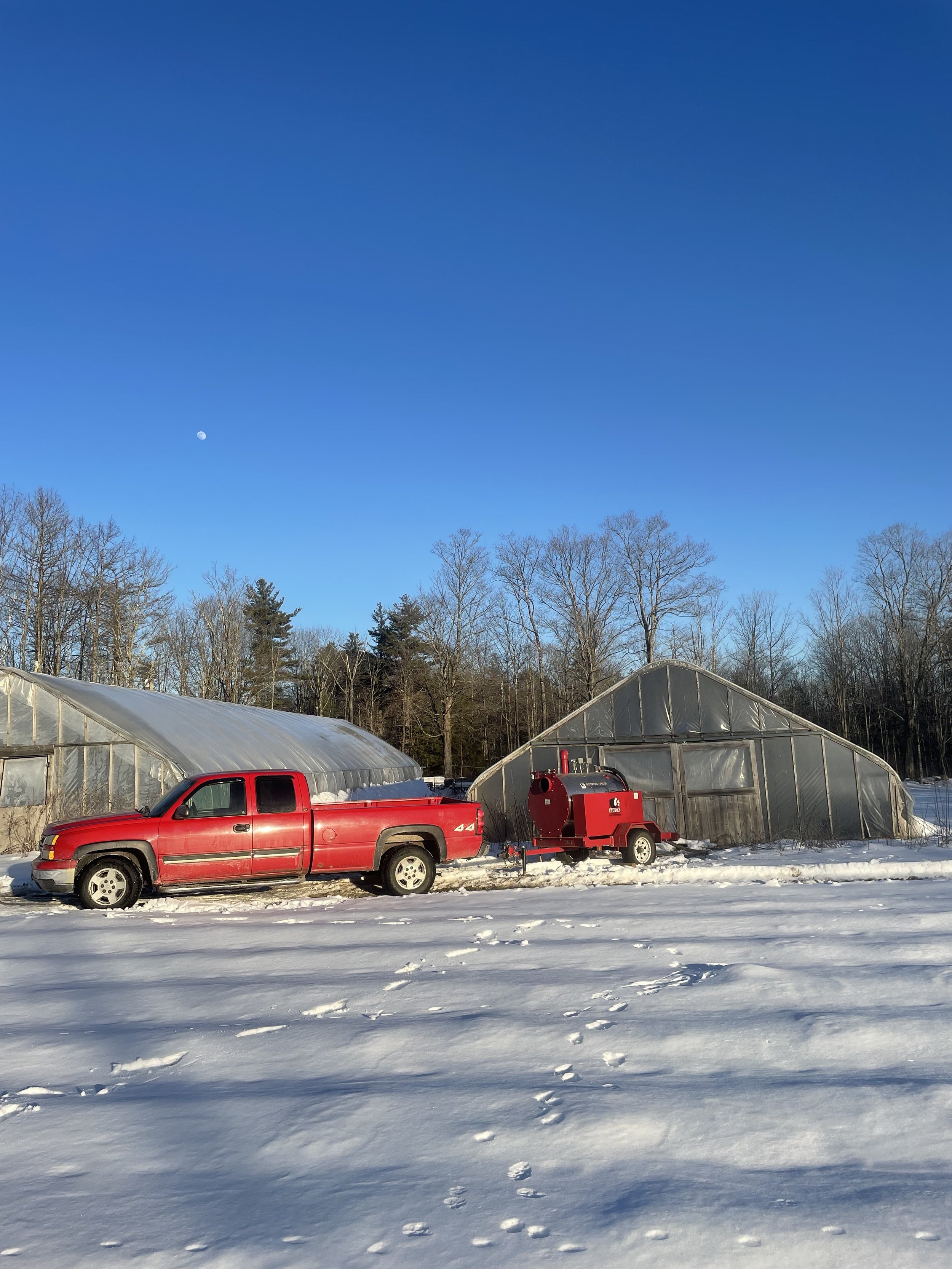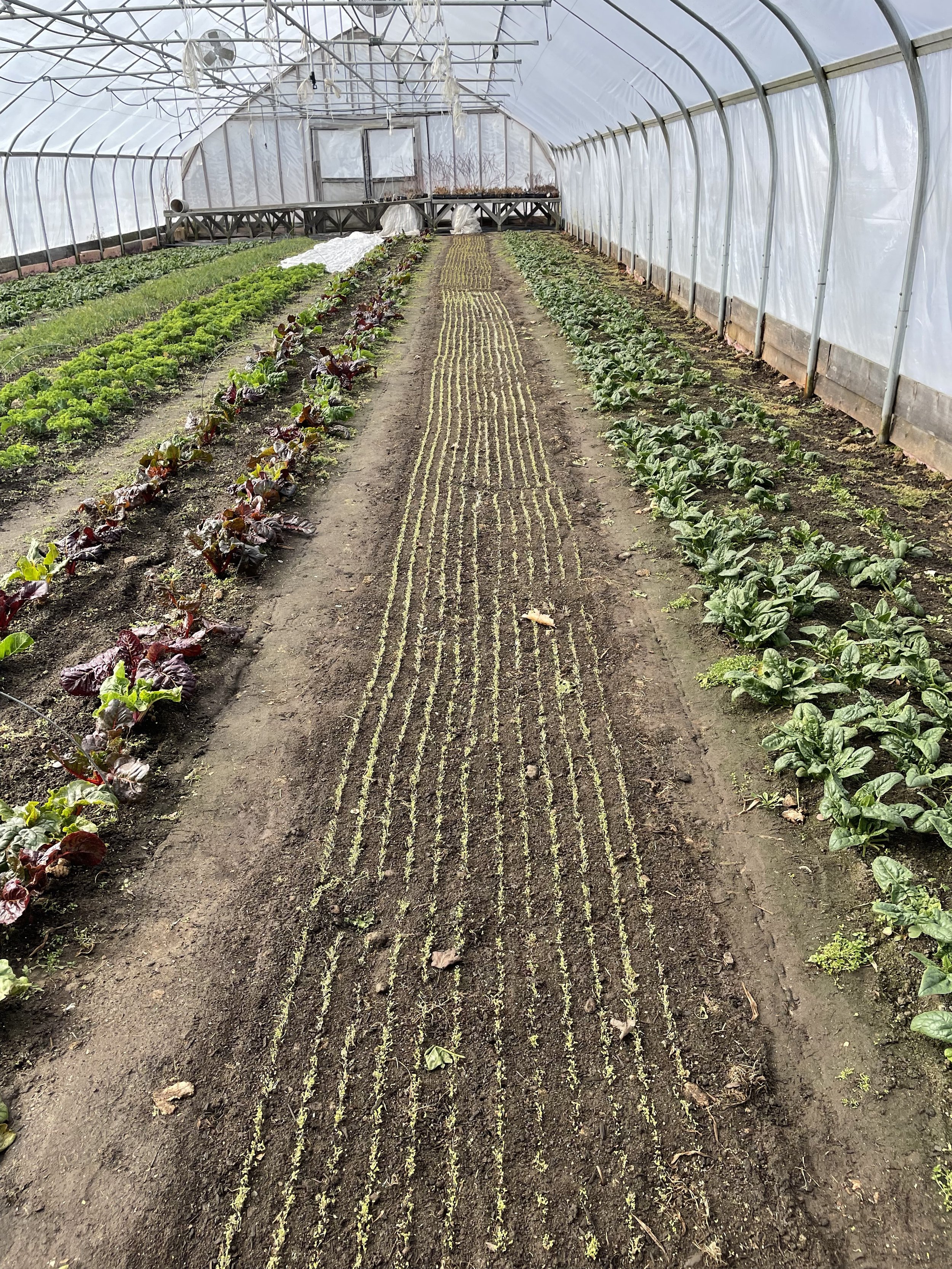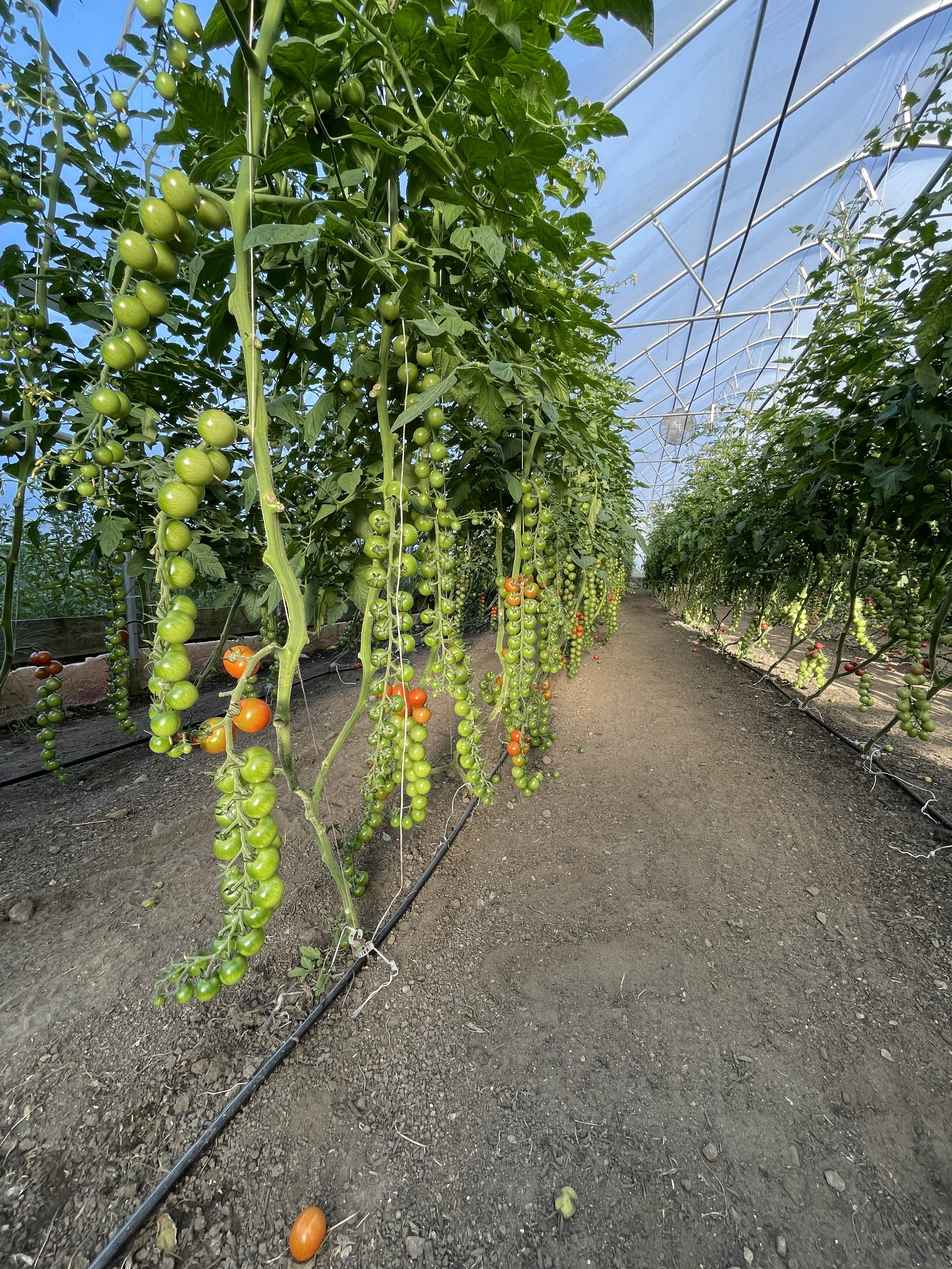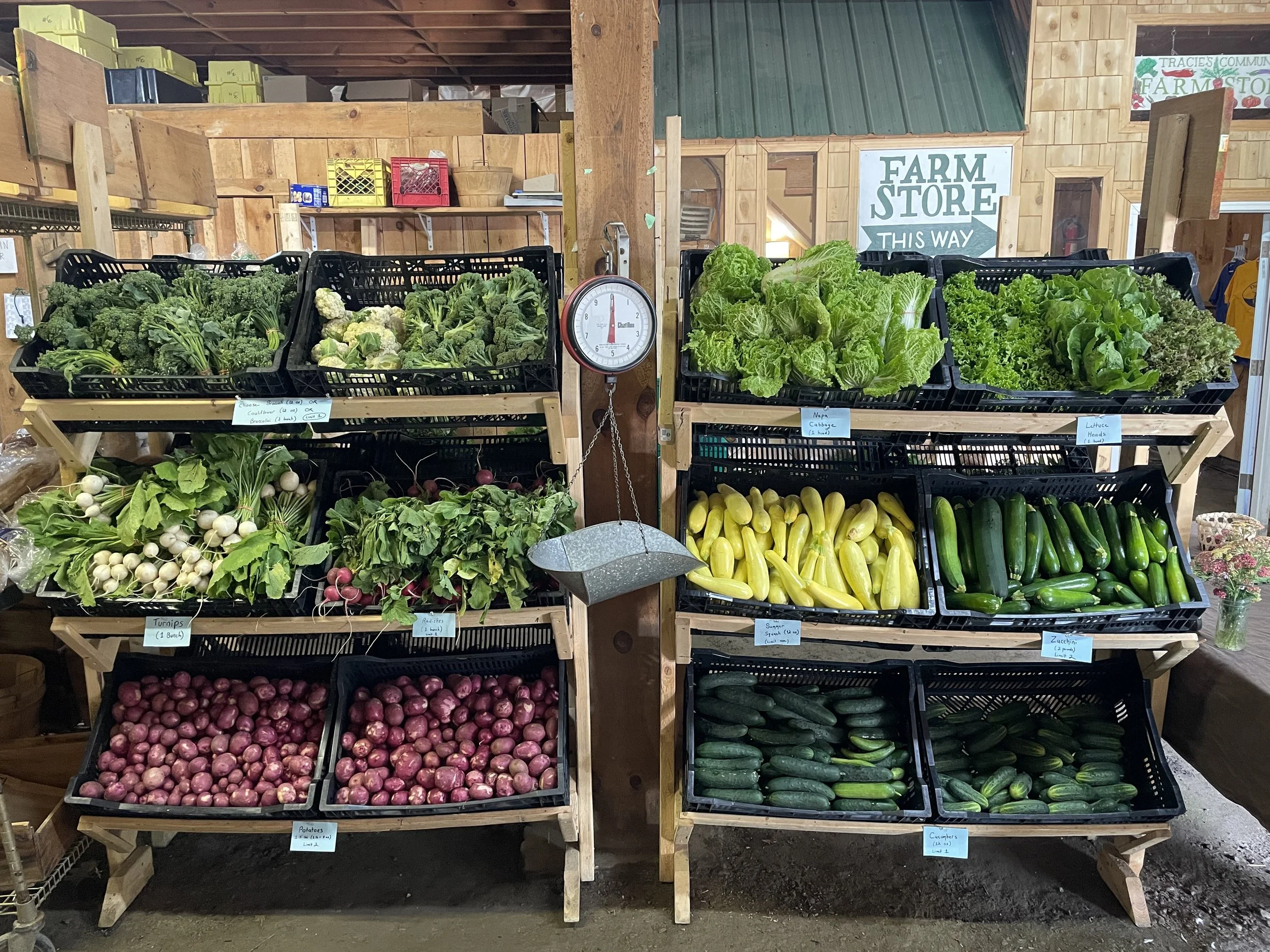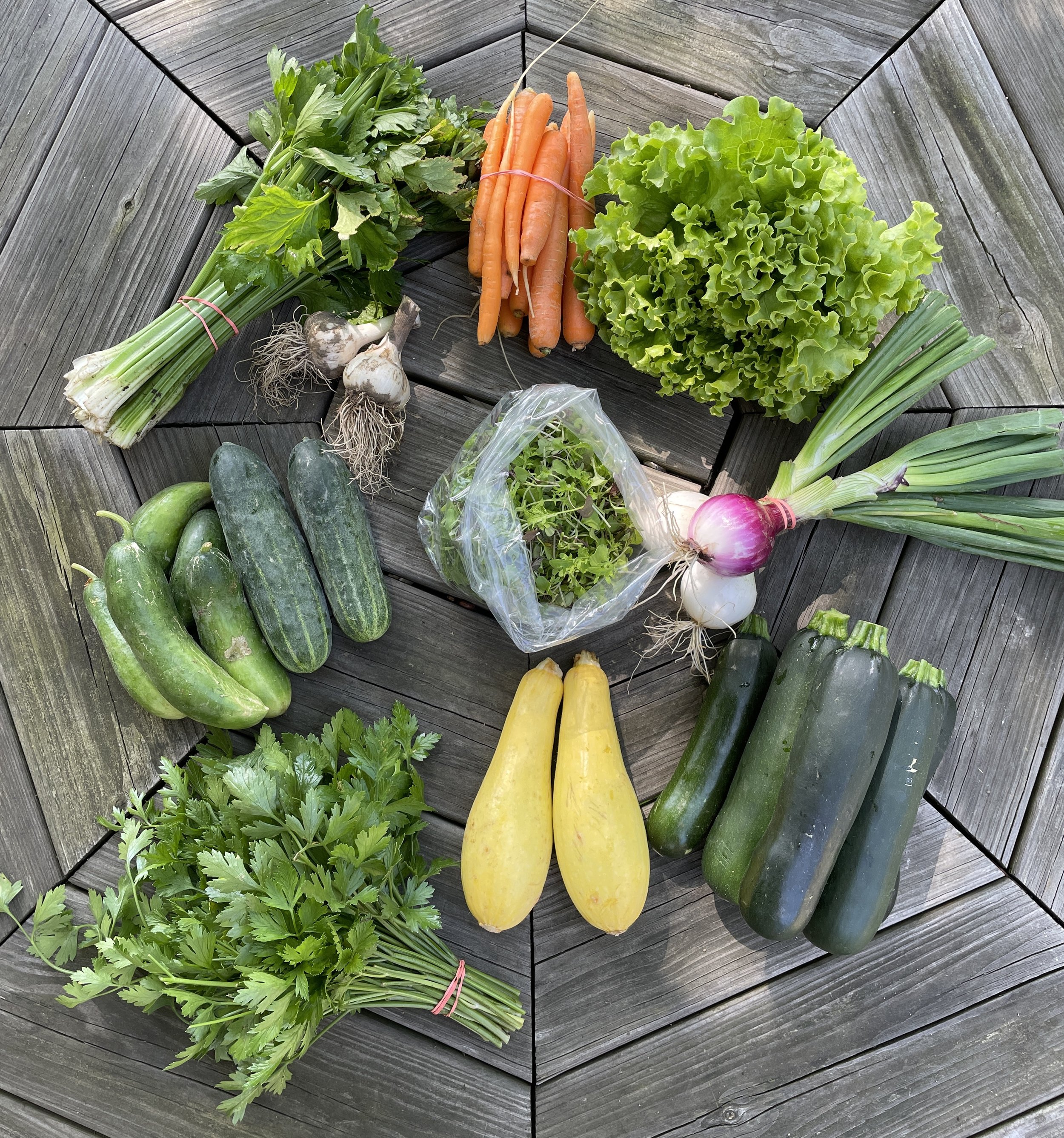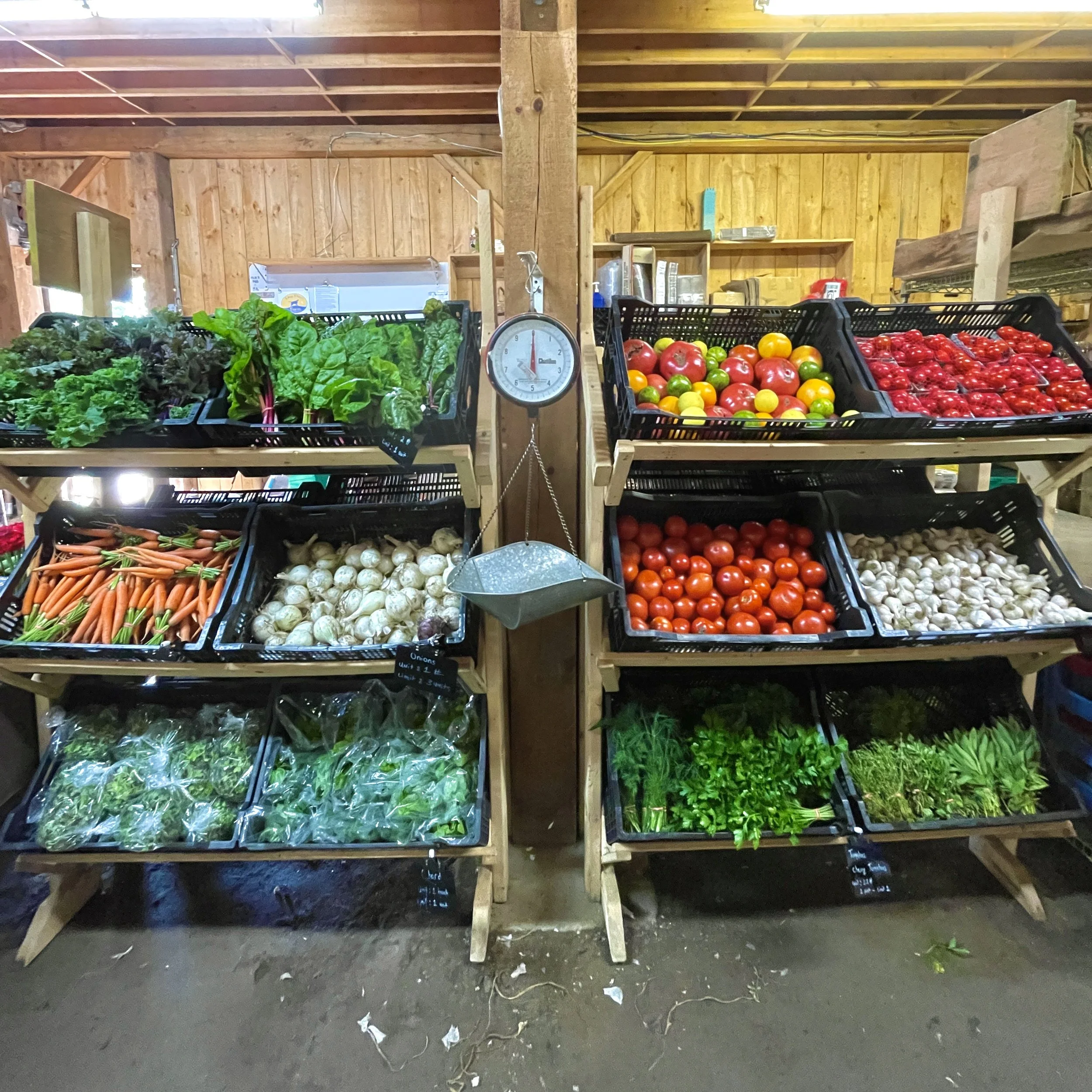Soil Steaming in the Greenhouse
There's a new tradition at the beginning of the season here, and that is running the soil steamer in our greenhouses prior to seeding for the spring. We borrow the soil steamer from the Cheshire County Conservation District to sterilize weed seeds. Soil steaming was a popular practice in the first third of the 20th century, before herbicides made it obsolete in conventional agriculture. It has seen a resurgence with the rise of organic, and the conservation district was able to acquire one for farms to rent at an affordable price!
Soil steaming uses an oil burner to heat up a holding tank of water. The accumulated steam is then piped into the greenhouse beneath a plastic tarp to trap the steam in place. The goal is to raise the temperature of the top two inches soil between 160 and 180 degrees and hold it there for about 30 minutes. This will effectively sterilize any weed seeds that are in that upper layer of soil.
Once the tarp is removed, there is a stale seedbed to plant into. An added bonus is that in the winter, the soil is much warmer than it would be for this time of year, which aids in germination. You can feel the warmth of the steamed soil for a day or two after removing the tarp.
Concerns over the effects on microbial life and activity in the soil have been studied and findings show that they are little effected by steam treatment. Larger organisms like worms will burrow deeper than the steam penetrates, and from those same areas, microorganisms are able to recolonize the upper layer of soil.
This is the second year that we have used the soil steamer with phenomenal results. We'll run it once in January prior to a spring seeding, and once in June before we swap the tunnels over to cucumbers and tomatoes. Spring crops reached maturity earlier than we have seen them with zero weed pressure. In the summer we do not have to lay weed mat down for tomatoes and cucumbers, which keeps the temperatures down through the heat of the summer, as well as makes for an easier cleanup and, in my opinion, much nicer look in the tunnels.
2024 CSA SHARES
Time to Sign Up for Summer and Fall CSA Shares!
Join us for another great growing season in 2024! Our summer CSA will run from June to September, and fall shares will finish out the year from October to November.
Pickup on the farm is market style on Wednesdays from 3:30pm-7:00pm. Delivered baskets are pre packed and delivered on Wednesdays by 7:00pm.
Summer Full Shares span 16 weeks and are $600.
"Floating" Half Shares pickup 8 weeks during the season and are $350.
Delivery is an additional $9/week. Half shares are delivered every other week.
Why Sign Up for CSA Early?
The farm has been busy as we prepare for the summer growing season. I encourage members to sign up for the CSA earlier rather than later. Not necessarily because I think we will sell out of shares--although I do expect we will--but because of the spirit of CSA and the importance it holds on the farm. The beginnings of Community Supported Agriculture in the US were influenced by many different schools of thought from all over the globe, but one reason was that it offered an alternative to the conventional debt driven agriculture that dominates US farms. For many farms, the bulk of expenses--excluding labor--come in the winter and early spring. In order to cover the costs associated with starting up for the new year, conventional practices suggest opening a line of credit to cover the initial costs and paying it off at the end of the year once crops have gone to market. In CSA, that "line of credit" is held by our members who buy a share of the produce before we have actually produced it. We then reimburse all of our members through the growing season as our crops reach maturity.
Right now we are looking at some large expenses to get started up for the season. We spend about $6,000 on seeds each January, $4,500 on fertilizer, $3,000 on compost for the fields, $7,000 for field and greenhouse supplies, insurance payments are due, and we have a tractor that needs to go to the shop for repairs. One of the first offical CSA's in the country is the Temple-Wilton CSA, and a founding principle of theirs is transparency with the farm budget. CSA members are stakeholders in their business, and as such they are privvy to the transactions that make the farm run. It is something that I always admired about that farm, and transparency is one of the core principles of Dog Days Farm, as well. Shares purchased in January and early February go towards covering these early startup costs on the farm. We're lucky to have a dedicated CSA membership, many of whom have already signed up for their share. For those that are waiting, I encourage you to sign up soon! We have already started seeding for 2024 and can use your support!


